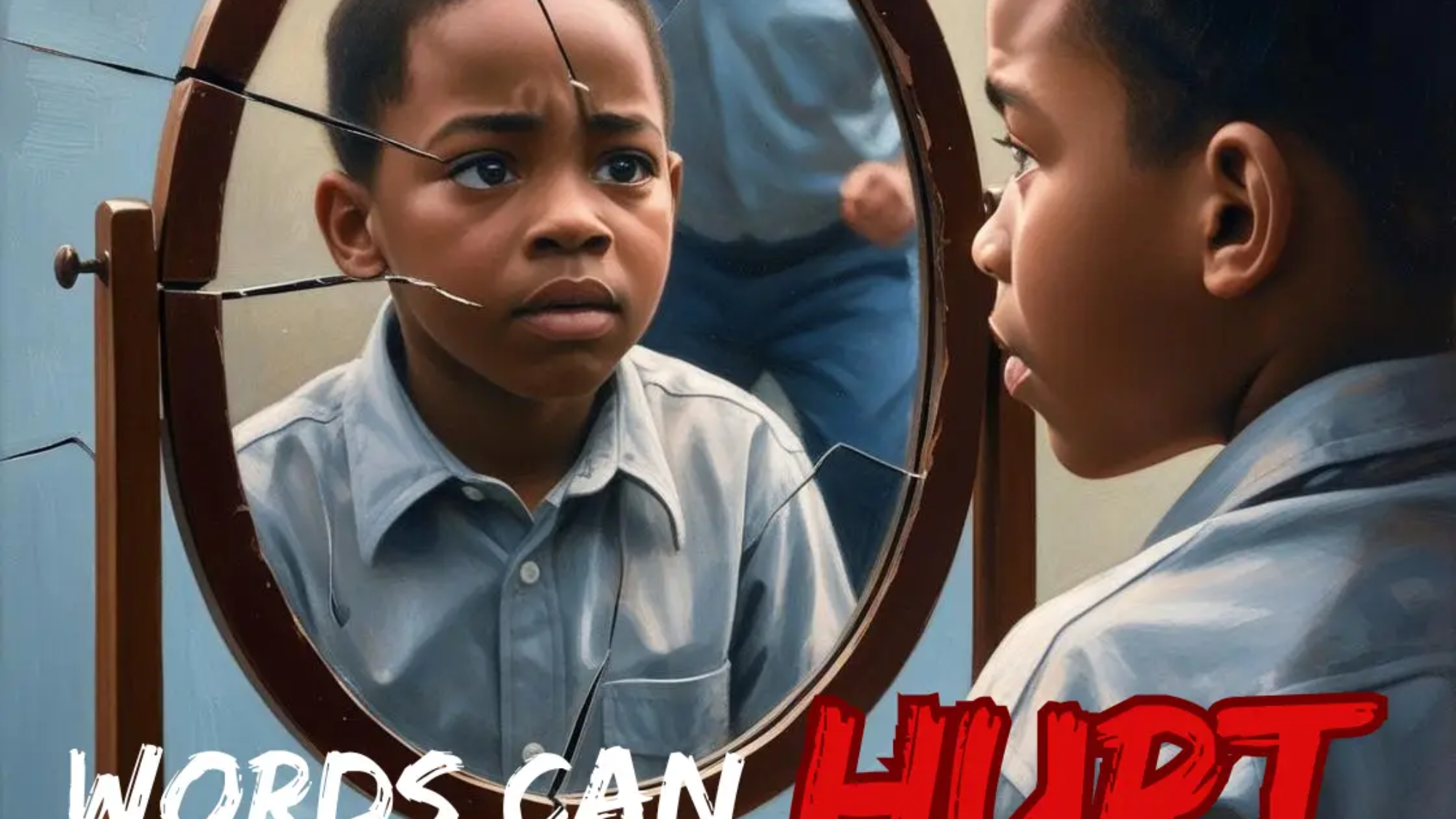As parents, our words have a significant impact on our children’s emotional development, self-esteem, and worldview, especially here in the busy lives of Central Florida families. The way we communicate shapes how they perceive themselves and the world around them. Small adjustments in language, based on research and expert advice, can help foster a more supportive and healthy environment for children (1). It’s also important to keep in mind that parenting styles and communication methods can vary by culture, so adapt these strategies in ways that work best for your family. For those seeking positive parenting help in Orlando, this blog explores practical examples of what to say and what to avoid, backed by evidence from child psychology and development studies.
1. Avoid Comparisons
What Not to Say:
- “Why can’t you be more like your brother?”
- “Look at how well your friend does in school. Why can’t you do that?”
Why It Hurts:
Research shows that comparing children to siblings or peers can lead to negative outcomes, including low self-esteem and sibling rivalry (2). Children who frequently hear comparisons may internalize a sense of inadequacy and resentment. According to a study published in the Journal of Child Development, such comparisons can hinder a child’s sense of individuality and contribute to anxiety and depressive symptoms (3).
What to Say Instead:
- “Everyone has their own strengths. Let’s focus on what you enjoy and what you’re good at.”
- “I’m proud of the effort you’re putting in. Keep it up, and you’ll get better!”
Example:
Sara often told her daughter Maya, “Why can’t you be more like your brother, Ravi? He’s so much better at math.” Maya began to feel inadequate, leading to lower self-confidence. This example aligns with findings from The Journal of Family Psychology, which suggest that children who are frequently compared are more likely to feel inadequate and suffer from sibling rivalry (4). When Sara stopped comparing her children and focused on praising their individual strengths, Maya’s motivation improved.
Tip:
Use eye contact and a calm tone when praising your child’s efforts. Non-verbal cues like these can reinforce positive communication, making your child feel even more valued and understood.
2. Don’t Label Your Child
What Not to Say:
- “You’re being lazy.”
- “You’re such a troublemaker.”
Why It Hurts:
Labels like “lazy” or “troublemaker” can have lasting consequences on a child’s self-concept. A study from Developmental Psychology shows that children who are labeled negatively often internalize these labels, which can lead to behavioral issues or disengagement (5), sometimes manifesting as aggressive or disruptive child behavior. Labels focus on the child’s character rather than specific behaviors, making them feel defined by one negative trait.
What to Say Instead:
- “It seems like you’re having a hard time getting started. How can I help?”
- “I know you’re capable of better. Let’s work on this together.”
Example:
Carlos often called his son Diego lazy when he didn’t complete chores. Over time, Diego started believing it and withdrew from participating. A Harvard Child Development study found that children who are negatively labeled are more likely to disengage from tasks (6). When Carlos shifted to focusing on Diego’s efforts rather than labeling, he began participating more willingly in household tasks.
Tip:
Body language matters: When giving feedback, kneel down to your child’s level or sit beside them, showing that you’re a partner in the solution. This non-verbal action builds trust and cooperation.
3. Avoid Negative Predictions
What Not to Say:
- “You’ll never be good at this.”
- “If you keep this up, you’ll never succeed.”
Why It Hurts:
Negative predictions about a child’s future can contribute to a “fixed mindset,” where they believe their abilities are static and unchangeable. According to research from The American Psychological Association, children who hear discouraging remarks are more likely to feel that their efforts don’t matter, leading to helplessness or giving up (7).
What to Say Instead:
- “Everyone has challenges, but with practice, you’ll get better.”
- “I see how hard you’re trying. Keep at it, and we’ll improve together.”
Example:
Amara once told her son Liam, “You’ll never be good at sports if you don’t try harder.” Liam became discouraged and wanted to quit. Research shows that children who receive positive feedback on their efforts are more likely to develop a growth mindset, which helps them persist through challenges (8). When Amara started acknowledging Liam’s effort, he became more motivated to practice and improve.
4. Avoid Dismissing Emotions
What Not to Say:
- “Stop crying, it’s not a big deal.”
- “You’re overreacting.”
Why It Hurts:
Dismissing a child’s emotions can lead to long-term emotional suppression. A study in Child Development found that children who feel their emotions are invalidated are more likely to struggle with anxiety and depression as they grow older (9). When parents dismiss their child’s feelings, it can also hinder the development of emotional intelligence and strain the parent-child relationship.
What to Say Instead:
- “I see that you’re upset. Let’s talk about what’s bothering you.”
- “It’s okay to feel sad or angry. How can I help?”
Example:
Priya often told her daughter Zainab, “You’re overreacting.” Zainab began to bottle up her feelings, unsure if they were valid. Studies suggest that children who feel emotionally dismissed often develop emotional suppression, which can lead to future mental health issues (10). Once Priya started validating Zainab’s emotions, their relationship improved, and Zainab felt more open about sharing her feelings.
Tip:
Use open body language when listening, like turning your body toward your child and maintaining soft eye contact. These non-verbal cues show that you’re emotionally present and actively engaged in what they’re saying.
5. Refrain from Threatening or Using Fear
What Not to Say:
- “If you don’t stop, I’m going to leave you here.”
- “I’ll take away all your toys if you don’t behave.”
Why It Hurts:
Fear-based discipline can damage trust between parent and child. Research published in The Journal of Family Relations found that repeated threats and fear-based tactics undermine a child’s sense of security and can lead to long-term anxiety (11). While threats may work in the short term, they don’t promote healthy behavior changes.
What to Say Instead:
- “Let’s figure out what’s going wrong and how we can fix it together.”
- “I know you’re capable of making better choices. Let’s work on this.”
Example:
John used to threaten his children with punishment if they misbehaved, but over time, they started calling his bluff. Studies show that children who are subjected to repeated empty threats develop less respect for authority figures and are more likely to test boundaries (12). When John began focusing on positive reinforcement and collaboration, he saw more cooperation and fewer power struggles.
Conclusion: Positive Parenting Support in Orlando
Parenting is an ongoing journey, and we all make mistakes. What matters is that we strive to create a supportive environment for our children. By being mindful of how we speak and by integrating non-verbal cues like eye contact and open body language, we can help our children feel valued, loved, and capable of overcoming challenges. Remember, it’s not about being perfect but about showing up and improving every day. Finding effective positive parenting help in Orlando can make a real difference for families in Lake Nona, Windermere, Winter Garden, Winter Park, and across the region.
How ACES Psychiatry Can Help Families in Orlando and Surrounding Areas
Navigating the challenges of parenting communication can be tough. If you’re facing difficulties related to your child’s behavior, emotional regulation, or if communication patterns are contributing to family stress, professional guidance can be invaluable. At ACES Psychiatry, conveniently located for families in Orlando, including Lake Nona, and extending our reach to Windermere, Winter Garden, and Winter Park, we offer expert support. Our approach focuses on understanding the unique dynamics of your family and providing strategies tailored to your needs. Whether it’s addressing underlying issues like anxiety, depression, or behavioral challenges, or simply seeking guidance on fostering healthier communication, we are here to help.
Disclaimer
The information provided in this blog post is for general informational and educational purposes only and does not constitute medical or psychological advice. It is based on personal learning, training, and research, and may not apply to all individuals or situations. Communication strategies and parenting techniques can vary based on individual child needs, family dynamics, and cultural backgrounds. Always consult with a qualified healthcare professional or mental health provider for any specific concerns or before making any decisions related to your child’s health or well-being. Do not disregard professional advice or delay seeking it because of something you have read in this blog. Reliance on any information provided herein is solely at your own risk. If you are experiencing a medical or mental health emergency, please call 911 or proceed to the nearest emergency room. Contact ACES Psychiatry to discuss your specific needs.
References
- Validation of Emotions in Parenting – Psychology Today. (2020).
- The Negative Effects of Comparisons on Children’s Self-Esteem – Journal of Child Development. (2018).
- Sibling Comparisons and Their Impact – The Journal of Family Psychology. (2019).
- Labeling and Self-Concept in Children – Developmental Psychology. (2016).
- Impact of Labels on Children’s Motivation – Harvard Child Development Study. (2020).
- Effects of Negative Predictions on Children’s Mindset – American Psychological Association. (2017).
- Positive Reinforcement and Child Persistence – The Journal of Applied Developmental Psychology. (2019).
- Emotional Validation and Child Development – Child Development. (2020).
- Emotional Suppression in Children – Journal of Emotional and Behavioral Disorders. (2018).
- Fear-Based Discipline and Trust Erosion – The Journal of Family Relations. (2021).
- The Long-Term Impact of Empty Threats – Journal of Applied Family Psychology. (2020).





Leave Your Comment